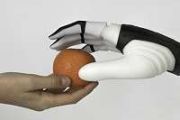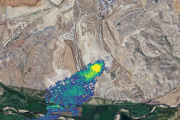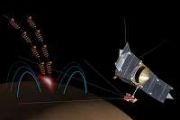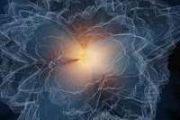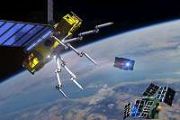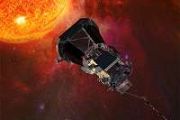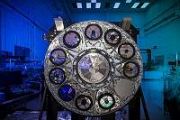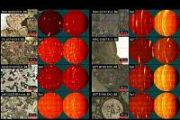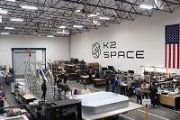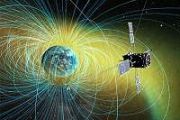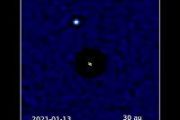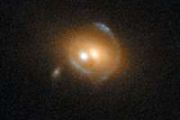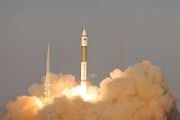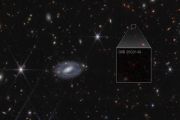
Copernical Team
'Startup Nation' Israel hopes to ride out storm
 The global economic slowdown and domestic political turmoil have not impaired the long-term prospects of Israel's vaunted hi-tech industry, officials and insiders say, despite a recent decline in hiring in the sector.
Nearly 18 percent of Israel's gross domestic product comes from the tech sector, which employs 12 percent of the workforce, generates nearly a third of its income tax and const
The global economic slowdown and domestic political turmoil have not impaired the long-term prospects of Israel's vaunted hi-tech industry, officials and insiders say, despite a recent decline in hiring in the sector.
Nearly 18 percent of Israel's gross domestic product comes from the tech sector, which employs 12 percent of the workforce, generates nearly a third of its income tax and const Rocket carrying Saudi man and woman launches to ISS
 The second-ever private mission to the International Space Station successfully launched on Sunday, carrying the first Saudi citizens, Rayyanah Barnawi, a breast cancer researcher, and Ali Al-Qarni, a fighter pilot, to the orbiting outpost. This marked the maiden voyage of Saudis to space, an event that had been due to take place on the same day.
The SpaceX Falcon 9 rocket roared into the
The second-ever private mission to the International Space Station successfully launched on Sunday, carrying the first Saudi citizens, Rayyanah Barnawi, a breast cancer researcher, and Ali Al-Qarni, a fighter pilot, to the orbiting outpost. This marked the maiden voyage of Saudis to space, an event that had been due to take place on the same day.
The SpaceX Falcon 9 rocket roared into the SpaceX launching Saudi astronauts on private flight to space station
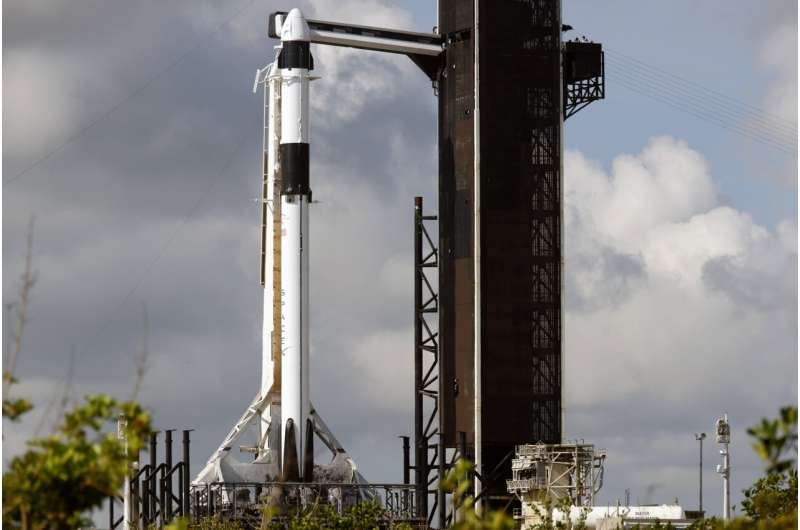
SpaceX's next private flight to the International Space Station awaited takeoff Sunday, weather and rocket permitting.
The passengers include Saudi Arabia's first astronauts in decades, as well as a Tennessee businessman who started his own sports car racing team. They'll be led by a retired NASA astronaut who now works for the company that arranged the 10-day trip.
It's the second charter flight organized by Houston-based Axiom Space.
Private mission carrying first Saudi astronauts to visit ISS set for launch
 A private mission to the International Space Station (ISS) organized by Axiom Space is due to blast off from Florida on Sunday, carrying the first two Saudi astronauts to go to the orbiting laboratory.
Rayyanah Barnawi, a breast cancer researcher, will become the first Saudi woman to voyage into space and will be joined on the mission by fellow Saudi Ali Al-Qarni, a fighter pilot.
The A
A private mission to the International Space Station (ISS) organized by Axiom Space is due to blast off from Florida on Sunday, carrying the first two Saudi astronauts to go to the orbiting laboratory.
Rayyanah Barnawi, a breast cancer researcher, will become the first Saudi woman to voyage into space and will be joined on the mission by fellow Saudi Ali Al-Qarni, a fighter pilot.
The A TransAstra receives Space Force contract to explore in-orbit propulsion systems
 U.S. orbital logistics and space mining company TransAstra Corporation announced Friday that the U.S. Space Force has awarded it a Phase One Small Business Innovation Research (SBIR) contract to explore new applications for the company's patented, propellant-agnostic Omnivore thruster.
The groundbreaking propulsion technology provides thrust typically six times faster and eight times cheap
U.S. orbital logistics and space mining company TransAstra Corporation announced Friday that the U.S. Space Force has awarded it a Phase One Small Business Innovation Research (SBIR) contract to explore new applications for the company's patented, propellant-agnostic Omnivore thruster.
The groundbreaking propulsion technology provides thrust typically six times faster and eight times cheap Beidou launches fifty-sixth Beidou navigation satellite
 The fifty-sixth Beidou navigation satellite, developed by the Fifth Academy of China Aerospace Science and Technology Corporation, recently took to the skies. The satellite is part of the geostationary orbit constellation and serves as the first backup satellite for China's Beidou-3 project.
Upon entering orbit and passing on-orbit tests, it will join the Beidou satellite navigation system
The fifty-sixth Beidou navigation satellite, developed by the Fifth Academy of China Aerospace Science and Technology Corporation, recently took to the skies. The satellite is part of the geostationary orbit constellation and serves as the first backup satellite for China's Beidou-3 project.
Upon entering orbit and passing on-orbit tests, it will join the Beidou satellite navigation system An X-ray look at the heart of powerful quasars
 Researchers have observed the X-ray emission of the most luminous quasar seen in the last 9 billion years of cosmic history, known as SMSS J114447.77-430859.3, or J1144 for short. The new perspective sheds light on the inner workings of quasars and how they interact with their environment. The research is published in Monthly Notices of the Royal Astronomical Society.
Hosted by a galaxy 9.
Researchers have observed the X-ray emission of the most luminous quasar seen in the last 9 billion years of cosmic history, known as SMSS J114447.77-430859.3, or J1144 for short. The new perspective sheds light on the inner workings of quasars and how they interact with their environment. The research is published in Monthly Notices of the Royal Astronomical Society.
Hosted by a galaxy 9. Georgia Tech to lead NASA Center on Lunar Research and Exploration
 Georgia Tech researchers have been selected by NASA to lead a $7.5 million center that will study the lunar environment and the generation and properties of volatiles and dust. The Center for Lunar Environment and Volatile Exploration Research (CLEVER) will be led by Thomas Orlando, professor in the School of Chemistry and Biochemistry.
CLEVER is the successor to Orlando's pioneering REVEA
Georgia Tech researchers have been selected by NASA to lead a $7.5 million center that will study the lunar environment and the generation and properties of volatiles and dust. The Center for Lunar Environment and Volatile Exploration Research (CLEVER) will be led by Thomas Orlando, professor in the School of Chemistry and Biochemistry.
CLEVER is the successor to Orlando's pioneering REVEA Pair of NASA weather satellites to launch from New Zealand
 A new pair of NASA weather satellites is ready for a ride into Earth orbit Monday from New Zealand. The launch time for the mission, called "Coming to a Storm Near You," is 1:30 a.m. EDT.
Called TROPICS, the Nos. 5 and 6 satellites are part of a constellation of extreme weather observatories, also known as CubeSats because of their small size and low weight.
The first successful TROP
A new pair of NASA weather satellites is ready for a ride into Earth orbit Monday from New Zealand. The launch time for the mission, called "Coming to a Storm Near You," is 1:30 a.m. EDT.
Called TROPICS, the Nos. 5 and 6 satellites are part of a constellation of extreme weather observatories, also known as CubeSats because of their small size and low weight.
The first successful TROP NASA selects winners, announces final phase of Space Food Challenge
 NASA has announced eight winning teams and awarded $750,000 in prizes in the second phase of the agency's Deep Space Food Challenge. The winning teams will move on to compete in the third and final phase of the challenge.
As NASA prepares to send astronauts farther into the solar system than ever before, the agency needs food systems that can fortify future crews in deep space for years at
NASA has announced eight winning teams and awarded $750,000 in prizes in the second phase of the agency's Deep Space Food Challenge. The winning teams will move on to compete in the third and final phase of the challenge.
As NASA prepares to send astronauts farther into the solar system than ever before, the agency needs food systems that can fortify future crews in deep space for years at 








